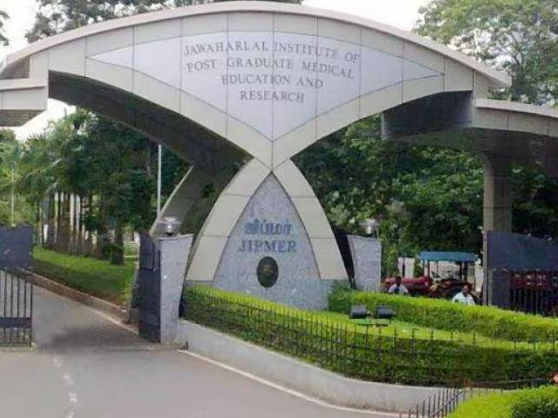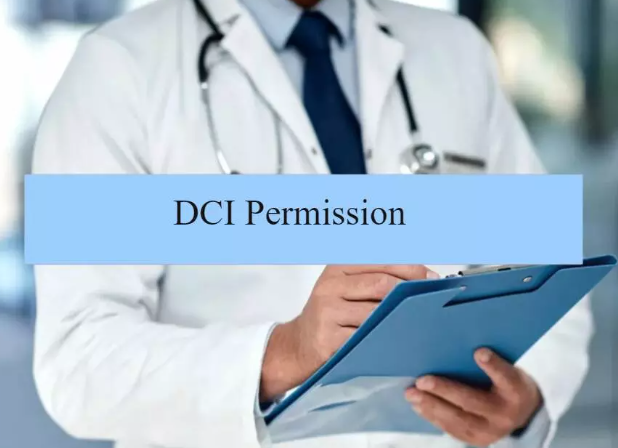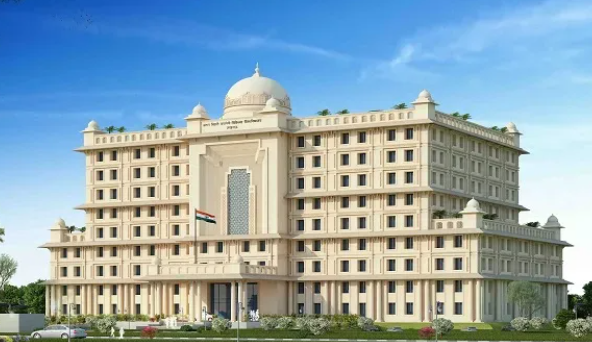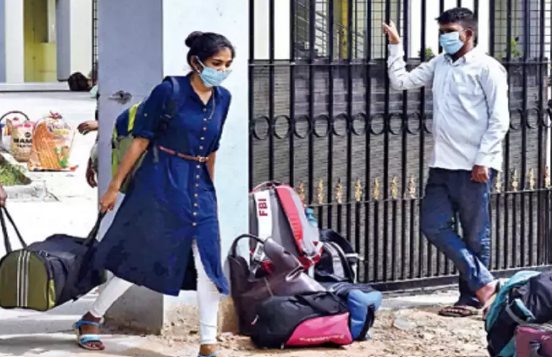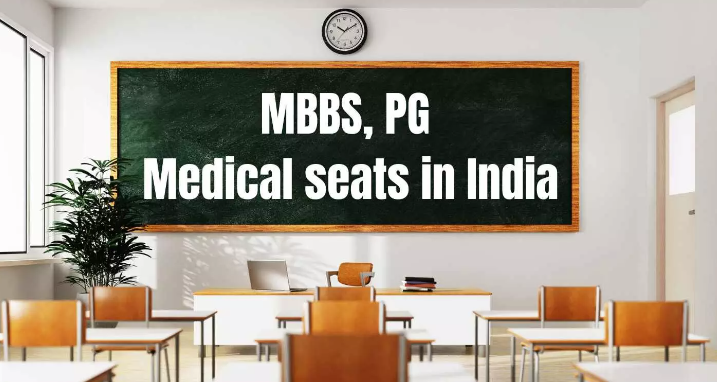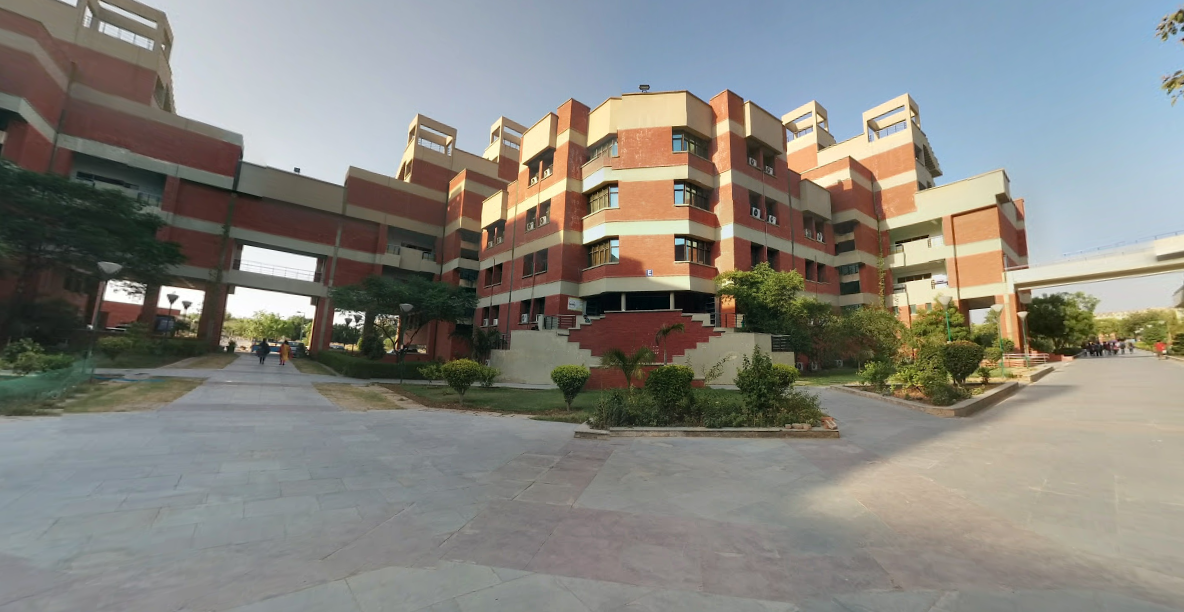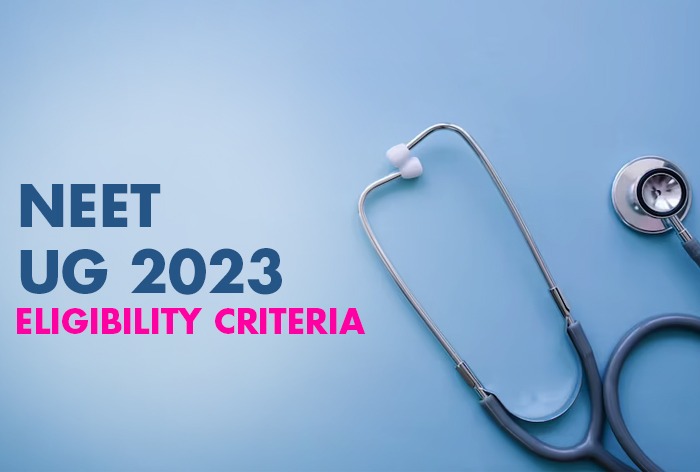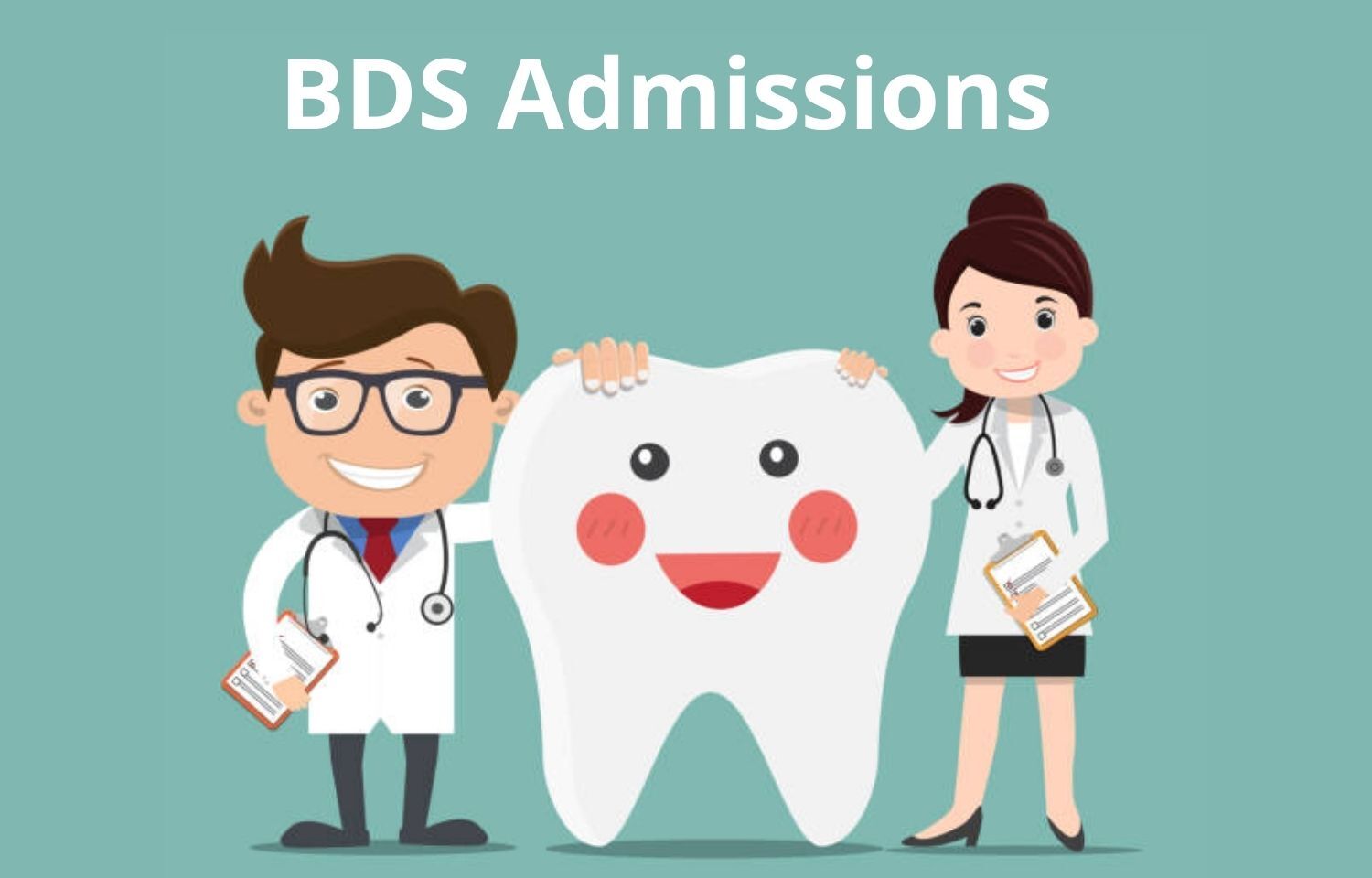JIPMER prospectus for online registration for Post-Doctoral Fellowship, PDCC
A detailed prospectus for the start of online registration for the Post-Doctoral Fellowship (PDF) and Post-Doctoral Certificate Course (PDCC) has just been released by the Jawaharlal Nehru Postgraduate Medical Education and Research Institute (JIPMER).
Detailed schedule –
| Online Registration closes on | 10-05-2023 (Wednesday) 04:30 PM |
| Downloading of Hall Tickets from JIPMER website www.jipmer.edu.in | 18-05-2023 (Thursday) 11:00 AM to 28-05-2023 (Sunday)08:00 AM |
| Date & Time of Online Entrance Examination | 28-05-2023 (Sunday) 09:00 AM to 10:30 AM |
| Expected date of publication of merit List | On or Before 09-06-2023 (Friday) |
| Details For the uploading of documents and admission procedures | Will be informed later |
| Admission process: Submission of original certificates, Payment of Admission Fees, Medical Board Examination, etc. | On or before 29-06-2023 (Thursday) |
| Issue of Admission Order | 29-06-2023 (Thursday) |
| Commencement of Course | 01-07-2023 (Saturday) |
| Close of Admissions for PDF & PDCC COURSES JULY 2023 Session 10-05-2023 | 31-08-2023 (Thursday) |
Before beginning the online registration process, candidates are urged to read the prospectus to make sure all required fields are filled in. Under no circumstances will a request for the correction of an application error or a fee refund be taken into consideration.
Application procedures:
- Online registration
- Candidate information entry and document uploading
- online payment
- The confirmation page
Go to the institute’s website, www.jipmer.edu.in, and click the link “Application Link for PDF & PDC COURSES – July 2023.” The entire name submitted by the candidates in the application must match both their MD/MS/DNB/DM/M.Ch. Degree Certificate and their government-issued photo ID card (Aadhaar Card, Pan Card, Identity Card, Driver’s Licence, etc.). (Spelling and order must be similar – if it is not the same, the candidate is encouraged to fix it in the document listed above/documents before applying).
Candidates should carefully complete all fields. After the online application has been submitted, no requests to modify the information a candidate provided will be taken into account or entertained. The candidate details, scanned photo, and signature must all be uploaded before hitting the “submit button” to finish the online application submission procedure.
Candidates are urged to save a copy of their completed application that includes all the required information. Let’s say that after paying the application cost, the candidate discovers an entry error they made in their application. In that situation, a fresh application must be made, and a new fee must be paid. The previous application will be automatically withdrawn. No written or email correspondence will be accepted in this regard
The right to receive a hall ticket does not automatically follow the completion of registration and payment. Applications that are incomplete or contain incorrect or inaccurate information may be rejected at any time.
The candidate must use the below-mentioned online transactions to pay the application costs for each category. There won’t be any other forms of payment accepted.
Fee Category:
General (UR)/EWSs: Rs.1,600+ Transaction Charges as applicable
OBC: Rs.1,600+ Transaction Charges as applicable
SC/ST: Rs.1,200+ Transaction Charges as applicable
PwBD: Not Subject to Application Fees
Post-Doctoral Fellowship/Certificate Courses – Post-Doctoral Fellowship (PDF) –
| Department | Course | Duration |
| Cardiology | Cardiac Electrophysiology and Pacing | 2 years |
| General Medicine | Infectious Diseases | 2 years |
| Microbiology | Hospital Infection Control | 2 years |
| Neurology | Stroke Intervention and Advanced Rehabilitation | 1 years |
| Neurology | Comprehensive Epilepsy Care | 1 years |
| Obstetrics & Gynecology | Obstetric Medicine | 2 years |
| Surgical Gastroenterology | Hepato-Pancreatic-Biliary Surgery | 1 years |
| Obstetrics & Gynecology | Gynaecology Oncology | 2 years |
| Ophthalmology | Glaucoma# | 1 years |
Post-Doctoral Certificate Courses (PDCC)
| Department | Course | Duration |
| Dermatology | Paediatric Dermatology | 1 year |
| Dermatology | Lasers and Dermatosurgery | 1 year |
| General Medicine | Diabetology | 1 year |
| Medical Oncology | Hemato-Oncology | 1 year |
| Medical Oncology | Paediatric Oncology | 1 year |
| Pathology Course | Hemato-Pathology | 1 year |
| Pathology Course | Nephro-Pathology | 1 year |
| Psychiatry | Child & Adolescent Psychiatry | 1 year |
| Radio-diagnosis | Advanced Imaging | 1 year |
| Transfusion | Apheresis | 1 year |
Seats – A total of 20 seats are available in these courses.
Post-Doctoral Fellowship (PDF): 9 seats
Post-Doctoral Certificate Courses (PDCC): 11 seats
If the Competent Authority issues any periodic directions, the number and distribution of seats may change. The sponsored seats won’t be transformed to general seats in the appropriate specialty if there are no acceptable applicants for them.
No reservations are observed for the super speciality courses of DM/MCh/Fellowship/PhD courses in this Institute, as per the ruling of the Constitution Bench of the Supreme Court of India in Writ Petition C No. 350/1998.
Eligibility for admission to PDF & PDC courses –
- Candidates should be Indian Nationals.
- Candidates should have passed MD/MS/DNB degrees from any Institute/University recognized by the National Medical Commission (NMC).
- The abovementioned degree must be registered with the National Medical Commission/State Medical Council.
- Candidates should have completed the qualifying postgraduate course on or before June 30, 2023.
| PDF & PDCC | Eligibility |
| Cardiac Electrophysiology and Pacing | DM/DNB Cardiology |
| Infectious Diseases | MD/DNB General Medicine Paediatrics |
| Hospital Infection Control | MD/DNB Microbiology |
| Stroke Intervention & Advanced Rehabilitation | DM/DNB Neurology |
| Comprehensive Epilepsy Care | DM/DNB Neurology |
| Obstetric Medicine | MS/MD/DNB Obstetrics & Gynaecology |
| Hepato-Pancreatic-Biliary Surgery | MCH/DNB Surgical Gastroenterology/ Gastrointestinal Surgery |
| Gynaecology Oncology | MS/MD/DNB Obstetrics & Gynaecology |
| Ophthalmology | MS/DNB Ophthalmology and three-year senior residency post-qualifying degree |
| Paediatric Dermatology | MD/DNB Dermatology/ Dermatology, Venerology & Leprology |
| Lasers and Dermatosurgery | MD/DNB Dermatology/ Dermatology, Venerology & Leprology |
| Diabetology | MD/DNB General Medicine |
| Haemato-Oncology | MD/DNB General Medicine |
| Paediatric Oncology | MD/DNB Pediatrics |
| Haemato Pathology | MD/DNB Pathology |
| Nephro Pathology | MD/DNB Pathology |
| Child & Adolescent Psychiatry | MD/DNB Psychiatry |
| Advanced Imaging | MD/DNB Radio diagnosis |
| Apheresis | MD/DNB Transfusion Medicine Immunohematology (OR) MD/DNB Pathology with one-year blood bank work experience from an Academic Post Graduate Institute. |
Sponsored Category:
In order to be admitted to the course in the discipline, candidates applying as sponsored candidates must meet the requirements listed below, which have been duly certified by their sponsoring authority employer. The sponsorship certificate (Annexure-V) must be submitted by the candidate as a scanned document.
Applicants are allowed to upload a scanned copy of the sponsorship certificate (.jpg / pdf) using their user id and password on or before 12.05.2023 (Friday) 1 PM in the database if they are unable to upload the sponsorship certificate at the time of submission of the online application. Such applicants’ applications will be immediately rejected if the database for their scanned copies is not updated, and no hall ticket will be prepared or granted.
The supported certificate must state that the following is true:
- That the candidate is a permanent or regular employee of the deputing/sponsoring Authority and should have been working for at least the last three years (on or before June 30 2023).
- The candidate would be properly engaged by the deputing/sponsoring Authority to work for at least five years in the speciality in which they received training at JIPMER, Puducherry, after completing their training there.
- And that throughout the duration of their course, JIPMER Puducherry will not be responsible for paying any financial obligations in the form of emoluments, stipends, or other compensation; this will be the sponsoring Authority’s duty.
- Sponsorship of candidates holding tenure appointments (like house job, Junior or Senior Residency, adhoc or contract or honorary appointment against a leave vacancy) shall NOT be accepted. Sponsorship of any candidate by private hospitals, institutes or nursing homes is not accepted. The sponsoring Institute should not nominate more than one candidate for each speciality specified in the distribution of seats in the Discipline. (Page No: 6 & 7).
Only the following will be approved as candidate sponsors or deputies:
- Departments or institutions of the federal or state governments
- Central or State Government Autonomous Bodies
- Institutions of higher learning in the public sector that are accredited by the MCI. When a candidate is sponsored or deputed by a medical college that is affiliated with a university and is approved by the National Medical Commission. Only a sponsorship or deputation certificate signed by the Principal of the relevant medical college is acceptable.
Sponsored/Deputed candidates must take the common entrance examination and pass in order to be selected. Candidates must make their own arrangements for lodging during the duration of their course if they are accepted for admission to any JIPMER course.
The sponsored candidates who are admitted will only have one month from the date of document verification to present sponsorship, relieving, study leave, or NOC certifications. Under no circumstances will there be another extension.
Exam specifics: The following ten Indian cities are being considered as potential locations for the exams:
| S. No. | Exam City | S. No. | Exam City |
| 1 | AHMEDABAD | 6 | MUMBAI |
| 2 | BANGALORE | 7 | NEW DELHI |
| 3 | BHUVANESWAR | 8 | PUDUCHERRY |
| 4 | CHENNAI | 9 | KOCHI |
| 5 | KOLKATA | 10 | HYDERABAD |
Only three exam cities are available to applicants. Exam City allocation will follow the applicant’s order of preference during online registration in a first-come, first-served fashion. MUMBAI
Under no circumstances will the candidate’s request for a change of centre be taken into consideration. The preferred exam city is simply a guide and is subject to change. The final say on the central allotment belongs to JIPMER. Let’s say a city hosting an exam is cancelled because not enough candidates are present there to meet the requirement. In that situation, JIPMER will reassign candidates who selected that city to any other centre or city that is open. Candidates will be required to abide by it.
Any exam city may be dropped at any time due to unforeseeable events. With proper notification via the website or text message, JIPMER is able to assign a new exam city all at once.
Summary of examination pattern
1- Mode Of Examinatiion: Computer-Based Test (CBT) [Online]
2- Duration of Examination: 1½ hours (One hour and thirty minutes)
3- Date of Examination: Sunday, 28th MAY 2023
4- Number of Shifts: 1 (One)
5- Timing of Examination: 9 AM to 10:30 AM
6- Location of Examination: Tentatively 10 cities in India
7- Language of Paper: English
8- Type of Examination: Objective Type
9- Number of Questions: One Paper of 100 (One Hundred) Questions
10- Type of Objective Questions : Multiple Choice Questions (MCQs)
11- Syllabus: From the concerned Discipline and related fields of qualifying examination as mentioned on page no. 15.
12- Marking Scheme: Correct answer : +4 Incorrect answer : – 1 Unanswered: 0
13- Cut-Off Percentage: Minimum Percentage (50%)
14- Method of determining merit : Overall merit By Percentages scores
15- Method of resolving ties :In the following order. Less Negative Marks Seniority by age
Hall Ticket –
Hall tickets for the entrance exam can be downloaded starting at 11 AM on Thursday, May 18, 2023. The following information will be on the hall ticket:
- The candidate’s entered name and birthdate on the application
- The candidate’s uploaded photo and signature
- The designated examination city and the roll number
Only those who present the original and photocopy of their identity evidence, as well as their hall ticket, will be permitted to take the entrance exam.
It is definitely forbidden for candidates to write anything on the hall ticket or the identity card photocopy.
This Hall Ticket is granted with the understanding that the candidature would be revoked if eligibility is discovered at any point.
Mock test:
It is recommended that candidates take the mock test for an online examination that is computer-based. (PDF & PDCC Course Entrance Examination) The mock exam and Candidate Experience video link will be accessible on www.jipmer.edu.in.
Results will be announced, along with the merit list, on or before Friday, June 9, 2023, according to a tentative schedule posted on the JIPMER website (www.jipmer.edu.in). Less than the required percentage of candidates will not be given consideration for admission, and their names will not appear on the Merit List. There won’t be any individual letters issued to the chosen applicants or others on the waiting list.
Overview of the admissions procedure (following the verification of the candidates’ uploaded documents) –
- Reporting to JIPMER,
- Biometric confirmation
- Photo/Image Verification
- Submission of original certificates and certificate verification
- If all of the credentials are valid, an admission order will be given based on the student’s performance in the relevant fellowship courses. Candidates will be removed from the merit list if they are absent on the day of certificate verification.
The chosen candidates must provide their authentic credentials on the same day that they pay the admissions fee in the academic section. (Or in accordance with the directives issued by relevant JIPMER officials).
Admission fees: PDF & PDC courses –
| S. No. | Description | Fee in INR |
| 1 | Admission Fee (one time) | 5,000 |
| 2 | Academic Fee (Tuition fee) | 2,200 |
| 3 | Learning Resource Fee (per annum) | 15,000 |
| 4 | Corpus Fund on Academic Fee (per annum) | 110 |
| 5 | Student information details (per annum) | 1,500 |
| 6 | Identity Card Charges (One time) | 150 |
| 7 | Caution deposit (refundable) | 3,000 |
| TOTAL | 26,960 | |




















